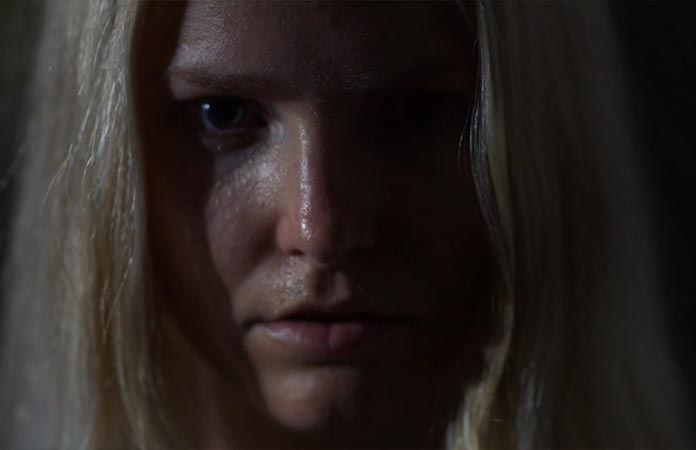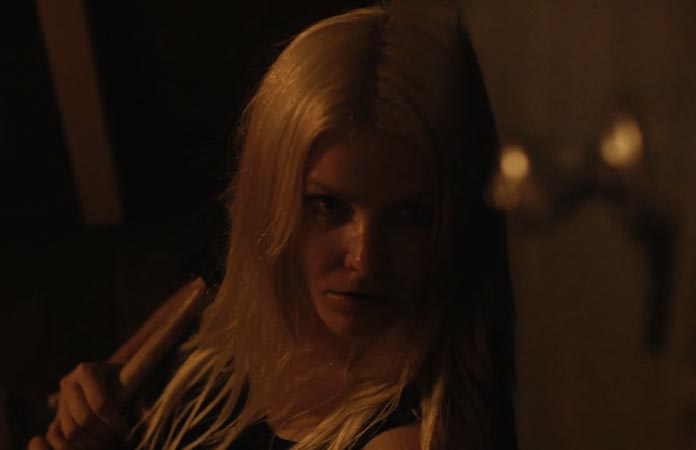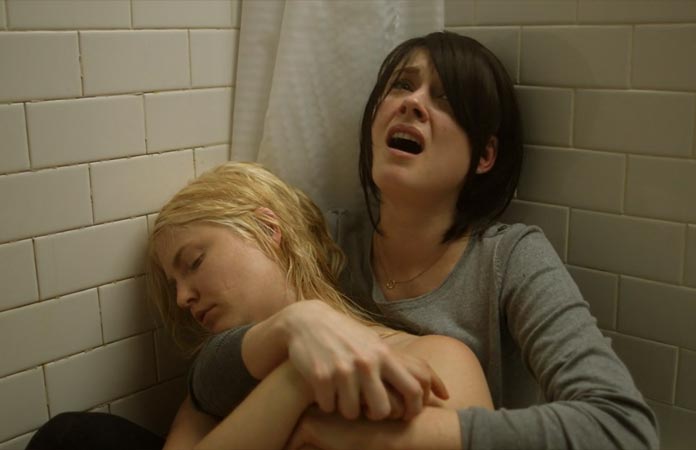Movie Review: Dark
Published on June 9th, 2016 in: Horror, Movie Reviews, Movies, Reviews, Upcoming Movies |
I thought I caused the 2003 blackout.
It was the end of a day at work, and just as I hit “save” on the document I was working on so I could leave for the day, everything went dark.
Driving home afterwards, now confident in the knowledge that the outage wasn’t my fault, it seemed like a changed world. People were out on the street, squinting at the sky. Some lined up at gas pumps that weren’t working, while others volunteered their time to direct traffic at busy intersections. That evening, our neighbors brought out all the about-to-be spoiled food from their freezers to barbecue or heat up on gas stoves. It was like a parallel reality, especially for someone like me that’s lived in a relatively cold, indifferent city for my whole life.
Take out the optimistic sense of community, and you have the world of Nick Basile’s feature film debut Dark. When the lights go out on New York City, the troubled Kate (Whitney Able), already twisted from a horrific past trauma and a strained relationship with her girlfriend Leah (Alexandra Breckenridge), is left to her own loneliness and self-doubt in a pitch-black loft where she already feels like an outsider. As she makes tension-filled excursions out of the building in an attempt to make any kind of connection with people, Kate is faced with a city that’s at once full of possibilities while also being a trigger for her own creeping dread.

Teasing out the tension in maddeningly slow intervals, for a full third of the film Dark revels in showing the least horrific, even mundane parts of Kate’s life. She fails to make coffee in her girlfriend’s espresso maker, instead using her own. She peers at unfamiliar, questionable takeout in the fridge. She’s harmlessly and charmingly asked out after a yoga class, and is met with jealousy when she relates her flattery to Leah. Finally, Leah leaves for the weekend, Kate skips her anti-anxiety medication, and things begin to spiral out of control when the blackout hits.
Whitney Able does a great job here of using subtle movements and facial expressions to let you into the internal strife of her character. Since she’s alone for a large amount of the film, with no one else to play off but the mysterious shadows and sounds in the loft, as well as her own inner voice (there’s a great scene in the middle of the film where she has a full conversation with herself, where you could swear another person is present), her ability to convey isolation, paranoia, and sexual dissatisfaction is remarkable.

Considering its setting, Dark never deals with big set pieces or the sort of disaster that can emerge from a city with no power. This particular disaster is, instead, turned inward, as the film is far more compellingly concerned with the effects of the blackout on its mentally-unstable protagonist. This is definitely a lower-budget affair, but Basile deftly wields light and shadow to elicit feelings of claustrophobia and a fear of what’s just off-screen. Though Joe Dante’s executive producer credit hangs over the promotion of Dark, don’t go into this looking for a creature feature or anything bombastic. I suspect it might be a bit of a misstep to lean on Dante’s influence in the marketing here, because Dark is an unapologetic slow burn that painstakingly builds its main character up so that it’s truly devastating when her worst fears come to pass.
A fear of the dark, known in clinical circles as nyctophobia, is really predicated on the limitless possibilities of the horrors that could be right in front of you when the lights are turned out. It’s a fear of the unknown, the unseen, and the idea that the very thing that appears in the dark is the thing you fear the most. In Dark, Nick Basile shows us that those fears and that darkness are as vivid within us as they are without.
Dark was released in the US on June 7 from Screen Media.
Time limit is exhausted. Please reload the CAPTCHA.